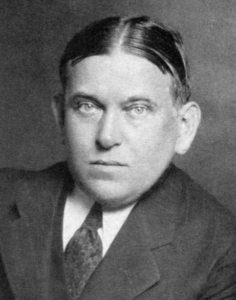REVIEW POTPOURRI: Looking back, Part 3
 by Peter Cates
by Peter Cates
Living in the Cambridge suburb of Somerville, I quickly discovered how much easier it was to walk a mile without noticing it on city streets than in the countryside of East Vassalboro. And I quickly discovered the joys and ease of walking to Harvard Square, from 23 Wyatt Street, in Somerville.
The center piece of Harvard Square, for me as a record collector, was the Harvard Coop, a department store with a second floor record department second only to the Jordan Marsh Annex one where I worked. And the Coop would stock imported LPs that the buyers at Jordan Marsh didn’t bother with.
I had become interested in the recordings of a British pianist Solomon whose combination of elegance, fluent technique and musical instincts with Beethoven and Mozart were unique. The Coop had a two-disc reissue of him performing three Mozart Piano Concertos on Germany’s da capo label, records that had been out of print for at least 20 years. I forked over $15 for that set and lived on hot dogs and canned beans for a week.
I had become acquainted with the Coop’s classical record buyer Helga when she dropped by Jordan Marsh’s classical record section while waiting for her husband to get off work (He was in charge of the camera department.). Evidently she was impressed enough with what I knew about classical records to call me three days later with a job offer, one I turned down as it would have only added $5 to my weekly salary and, having been employed by Jordan only two months, I decided it was not a good idea to jump ship.
I had heard of the Coop’s extraordinary record and book departments since my boarding school days at Kent’s Hill from the glee club director/algebra teacher Lee Walcott. My first visit there was when Gorham State College’s art appreciation class took a Greyhound bus trip to Boston’s Museum of Fine Arts in April 1970.
During lunch hour a classmate and myself split a $2 cab fare to Cambridge where I was immediately thrilled by the selection and bought two LPs – the original Broadway cast recording from 1949 of Lerner and Loewe’s Paint Your Wagon on RCA Victor and a budget-priced Philips World Series coupling of Debussy’s La Mer and Nocturnes performed by the Concertgebouw Orchestra of Amsterdam directed by Eduard Van Beinum.
Paint Your Wagon had such classic Great American Songbook gems as They Call the Wind Maria, I Talk to the Trees, and I Was Born Under a Wandering Star (Lerner and Loewe would eventually compose Brigadoon, My Fair Lady, Camelot and the soundtrack for Gigi).
In December 1971, my good friend and Shakespeare professor Stan Vincent drove me and two classmates down to a Loeb Theater production of Othello. Before the show, we visited the Coop where I bought the George Szell/Cleveland Orchestra Mahler 4th, one or two other records whose titles escape me and some Christmas presents.
The four of us bought an inexpensive dinner at the Wursthaus German restaurant, a nutritious eatery which I would frequently patronize later during my three years of residence in the baked bean capital.
The Othello production I remember as good but, for some inexplicable reason, not great. Strolling around Brattle Street was, however, a very evocative experience – I remember when talking about the trip to a Gorham friend, she replied, “Doesn’t it make you wish you were rich?”
More next week.
Linguistics
In his The American Language, the constantly hilarious Henry Louis Mencken (1880-1956) knew like nobody in recorded history how to discuss the otherwise boring (for me, not for Mencken) subject of linguistics. One underlying issue was the hostility of the English to us Americans in how we speak. This hostility is sneakily given a belly tickling twist when Mencken quotes a fellow American scholar:
“This dichotomy runs through most British writing on American speech….on the one hand the Americans are denounced for introducing corruptions into the language, and on the other hand those very expressions are eagerly claimed as of British origin to show that the British deserve the credit for them.”
Such “corruptions” of the language include “to locate, to operate, to antagonize, transportation, commutation, proposition.” A British semantics expert labels them as “hideous to the eye, offensive to the ear, meaningless to the brain.”
Mencken mentions the months of battles over mere word usage between “American patriots on one side and Englishmen and Anglomaniacs on the other.”
Responsible journalism is hard work!
It is also expensive!
If you enjoy reading The Town Line and the good news we bring you each week, would you consider a donation to help us continue the work we’re doing?
The Town Line is a 501(c)(3) nonprofit private foundation, and all donations are tax deductible under the Internal Revenue Service code.
To help, please visit our online donation page or mail a check payable to The Town Line, PO Box 89, South China, ME 04358. Your contribution is appreciated!



Leave a Reply
Want to join the discussion?Feel free to contribute!